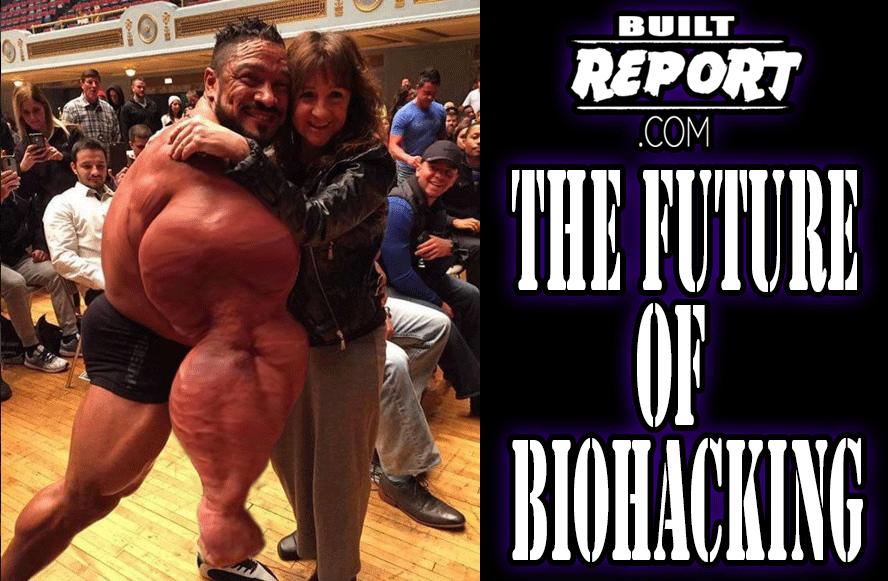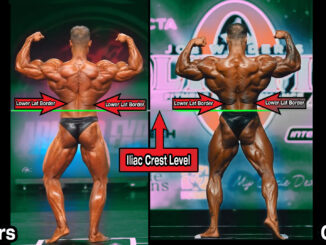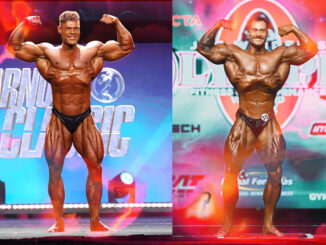
Jurassic Gorilla https://jurassicgorilla.com


The world of bodybuilding is undergoing a transformative shift with significant implications for the future. As technology and medical advancements continue to reshape the landscape, one must consider whether the traditional standards and expectations associated with bodybuilding will evolve as well.
In the past, large and well-developed muscles were primarily the result of good genetics combined with dedicated training. Achieving an Arnold Schwarzenegger-like physique was a standout achievement due to the rarity of such genetics. However, recent years have seen a shift with the increasing use of weight training and performance-enhancing drugs like steroids, insulin, and synthol. These substances, along with extensive training, have allowed many to attain massive physiques that were once reserved for the genetically gifted. The ubiquity of these approaches has arguably desensitized people to the idea of large muscles as a unique feat. Muscle size, once a hallmark of exceptional dedication and effort, is becoming more commonplace.
The future holds the promise of even more significant breakthroughs, such as myostatin blockers and genetic modification, which could replace traditional methods of muscle enhancement. These advances could lead to a scenario where anyone can attain a massive physique, even if they lack superior genetic potential. In such a world, the challenge of standing out in terms of muscle size may indeed diminish. Consequently, people may begin to seek alternative ways to distinguish themselves within the world of bodybuilding.
Biohacking, a field that encompasses do-it-yourself biology and human augmentation, will likely have a profound impact on bodybuilding. Biohacking conventions and a growing community of enthusiasts already exist, and as technology and information-sharing platforms continue to evolve, the possibilities seem endless. Just as computer hacking has produced highly skilled individuals capable of advanced feats, biohacking may give rise to individuals who push the boundaries of human potential.
This evolution in the field could lead to a cultural shift within physical culture itself. Body modification, whether through genetic engineering, nanotechnology, or other futuristic techniques, could result in a subculture that is unrecognizable compared to today’s standards. Bodybuilders may explore entirely new forms of self-expression, pushing the limits of what is possible and acceptable in the pursuit of physical excellence.
Ultimately, the future of bodybuilding may be an unpredictable blend of tradition and innovation. Those who want to distinguish themselves within this evolving landscape will need to stay on the cutting edge of emerging technologies and ideas. Whether they seek to explore new frontiers or return to the roots of the sport, bodybuilding is poised to enter an era where the boundaries of human potential are redefined and the very essence of physical culture is challenged.
Do It Yourself Biology
Do-it-yourself biology (DIY biology or DIY bio) is an emerging and dynamic field within biotechnology that represents a significant departure from traditional research institutions and corporations. It is characterized by a grassroots approach where individuals, communities, and small organizations engage in scientific research related to biology and life sciences. These DIY biologists use methodologies and techniques that were once exclusive to formal research settings. DIY biology has gained traction and momentum over the years, driven by a diverse range of motivations and goals.
Key features of DIY biology include:
- Amateur Scientists: DIY biology is typically led by individuals who are not part of the traditional scientific establishment, such as academia or corporations. These amateur scientists often have a passion for biology and may possess research training or experience in the field, making them well-equipped to initiate and oversee DIY biology projects.
- Mentoring and Collaboration: In many cases, individuals with formal training in biology take on mentorship roles, guiding those without such training in their DIY biology pursuits. This mentoring and collaboration model allows DIY biologists to benefit from the knowledge and expertise of more experienced individuals.
- Diverse Goals: DIY biology projects encompass a wide range of goals. Some individuals undertake these endeavors as a personal hobby or out of sheer curiosity. Others may engage in DIY biology for the betterment of their local community, with a focus on education and open-science innovation. Additionally, some DIY biologists seek to turn their scientific endeavors into profitable business ventures, aligning with the principles of entrepreneurship.
- Open Access and Collaboration: A prominent aspect of DIY biology is its commitment to open access and collaboration. DIY biologists often share their findings and discoveries openly, allowing for the free exchange of knowledge and data. This emphasis on openness and accessibility has the potential to accelerate scientific progress.
- Innovative Approaches: DIY biology is known for its innovative and unconventional approaches to research. By operating outside the constraints of traditional institutions, DIY biologists may explore novel hypotheses and tackle unique problems. This freedom to experiment can lead to groundbreaking discoveries.
- Community and Civic Engagement: DIY biology projects often extend into the community and engage the public in scientific activities. Workshops, seminars, and public events are commonly organized to promote science literacy and participation among a broader audience.
- Potential for Disruption: The DIY biology movement has the potential to disrupt traditional research models and democratize access to scientific exploration. It offers a platform for individuals to pursue their scientific interests independently, potentially leading to innovative solutions and technologies.
While DIY biology presents exciting opportunities for innovation and scientific discovery, it also raises questions about safety, ethics, and regulation, particularly when it comes to genetic engineering and biotechnology. Ensuring responsible and ethical practices within the DIY biology community is an ongoing discussion and concern.
In summary, DIY biology is a burgeoning movement that empowers individuals and communities to explore the realms of biology and life sciences, blurring the lines between amateur and professional scientists. It is characterized by its collaborative and open-access approach, diverse motivations, and potential for disruptive innovation in the field of biology.




Be the first to comment